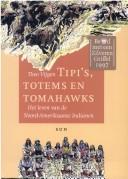| Listing 1 - 4 of 4 |
Sort by
|

ISBN: 9061684595 Year: 1996 Publisher: Nijmegen SUN
Abstract | Keywords | Export | Availability | Bookmark
 Loading...
Loading...Choose an application
- Reference Manager
- EndNote
- RefWorks (Direct export to RefWorks)
Book
Abstract | Keywords | Export | Availability | Bookmark
 Loading...
Loading...Choose an application
- Reference Manager
- EndNote
- RefWorks (Direct export to RefWorks)
History of Europe --- anno 1910-1919 --- Eerste Wereldoorlog --- First World War --- Grande Guerre --- Great War --- Groote oorlog --- Grote Oorlog --- Guerre mondiale [Première ] --- Guerre mondiale, 1914-1918 --- Première Guerre mondiale --- W.O. I, 1914-1918 --- WO.1 --- Wereldoorlog I --- Wereldoorlog [Eerste ] --- Wereldoorlog, 1914-1918 --- World War I, 1914-1918 --- World War One, 1914-1918 --- World War [First ] --- World War, 1914-1918 --- 1914-1918 [Guerre mondiale]
Book
ISBN: 9782503586489 9782503586472 2503586481 2503586473 Year: 2020 Publisher: Turnhout Brepols
Abstract | Keywords | Export | Availability | Bookmark
 Loading...
Loading...Choose an application
- Reference Manager
- EndNote
- RefWorks (Direct export to RefWorks)
This comprehensive study seeks to identify the interchange of ideas on warfare in the world of Classical Greece and Rome. What were the ideas that the ancient Greeks and Romans held about warfare? What do contemporary sources tell us about this? Is it possible to trace a development in the way of thinking about war in antiquity? These are the questions that are discussed (and answered) in this study. It combines a close reading of all the sources that we have – mostly written, like literary and historiographical, but also non-written, like art, monuments and coinage. The analysis of the discourse is accompanied by and contrasted with arguments raised by today’s specialists in the field of warfare and culture of ancient Greece and Rome. The study treats recurrent cultural themes like courage, fatherland, or victory within a chronological framework, for discourse features cannot be isolated from the context of their time. For each specific period – Greek, Hellenistic and the six parts of the long and diverse Roman time – conclusions are drawn. The remarkable developments in time that can be observed, especially in Rome, are brought together in the final chapter.
Dissertation
Year: 2001 Publisher: Antwerpen Lessius Hogeschool
Abstract | Keywords | Export | Availability | Bookmark
 Loading...
Loading...Choose an application
- Reference Manager
- EndNote
- RefWorks (Direct export to RefWorks)
| Listing 1 - 4 of 4 |
Sort by
|

 Search
Search Feedback
Feedback About UniCat
About UniCat  Help
Help News
News